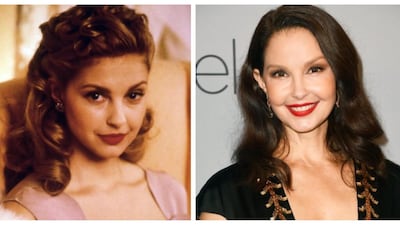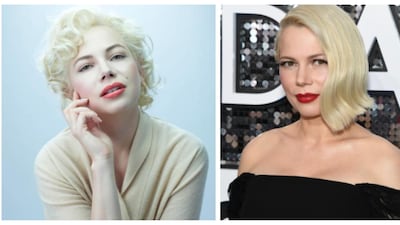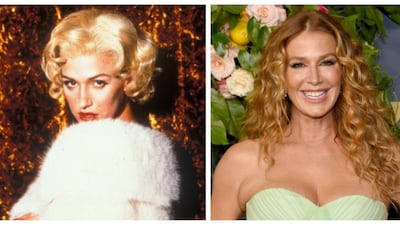More than 60 years after her death, as well as countless books, movies, TV shows and think pieces delving into every minute detail of her short life, there's more to Marilyn Monroe we still don't know.
Blonde, an unconventional look at the 1950s Hollywood bombshell's life, which had its premiere at the Venice International Film Festival this month, landed on Netflix on Wednesday. The film is based on the celebrated book by Joyce Carol Oates published in 2000, which reimagines the actress and singer's life. Directed by Andrew Dominik (The Assassination of Jesse James by the Coward Robert Ford), the film has received mixed reviews, with many praising Ana de Armas's portrayal while criticising the filmmaker's "confused" storytelling style.
Still, Blonde has reignited interest in the life of Monroe, who was born Norma Jeane Mortenson and whose influence on pop culture shows no signs of waning.
Here are five things you probably didn't know about the real Marilyn Monroe.
She stuttered as a child
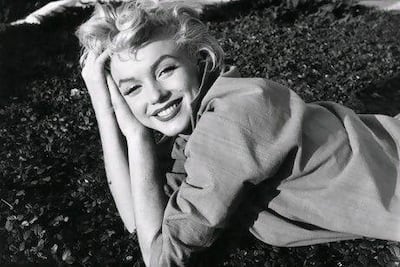
Monroe's signature breathy style was deliberate, but not for reasons you might think. It was a speech therapist who trained her to speak that way when she stuttered as a child and ended up becoming one of her most identifiable traits as an actor and singer.
The stuttering would return later in life, when she struggled with the pressures of her personal life and, according to numerous accounts, even contributed to her being fired from her final movie, Something's Got to Give. The film was never completed.
She almost starred in 'Breakfast at Tiffany's'

The role that would turn Audrey Hepburn into one of the biggest Hollywood stars was initially offered to Monroe. Truman Capote, whose novella the film was adapted from, wanted Monroe to play the lead, Holly Golightly, and Oscar-nominated screenwriter George Axelrod was hired to tailor the role for her.
But Monroe's acting coach Lee Strasberg advised her against accepting the role, telling her that playing a "lady of the evening" would be bad for her image, according to Sam Wasson, author of a bestselling biographer about the actress.
The film was a major critical and commercial success and one shot of Hepburn in character, cigarette holder in hand, is still considered one of the most recognisable images in pop culture.
She had an alter ego, Zelda Zonk
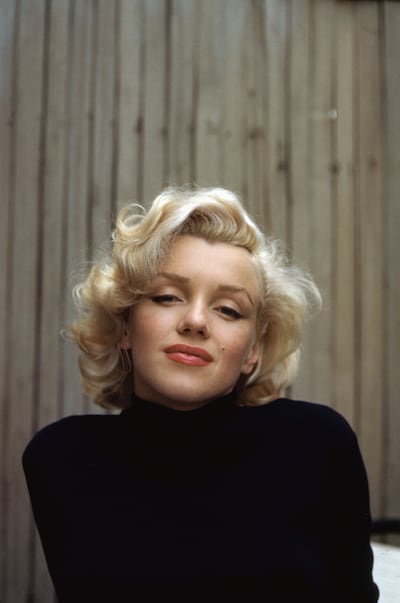
While most of us know Marilyn Monroe was a name given to her by a studio executive, the star born as Norma Jeane Mortenson adopted an alter ego once she became famous to avoid the paparazzi. In his book, The Empty Glass, journalist and screenwriter JI Baker writes that Monroe became “a normal” person through Zelda Zonk, wearing a dark wig and sunglasses.
She and Jane Fonda were classmates

Considered an American treasure herself, Oscar-winning actress Fonda went to the same acting school as Monroe, who was already a star when she wanted to be considered a serious actress and enrolled at Stradberg's Actors Studio.
In an interview with New York Times in 2020, Fonda recalled her time with Monroe.
"She liked me. I think she liked me because she sensed my insecurities and she was drawn to vulnerable things," she said. "I’ll never forget a party that Lee Strasberg gave and she came late, and she walked in and men there started to shake. I mean, they were physically excited and agitated by the fact that she was there. And she walked straight to me and wanted to talk."
Fonda added that Monroe was as striking in real life as on screen.
"She glowed. There was a glow coming out of her that was unbelievable. It came from her skin and her hair and her being. I’ve never seen anything like it," she said.
The FBI had a file on her

While Monroe's association with politics is often linked to her alleged affair with US president John F Kennedy, she was under investigation for something more sinister. During Monroe's six-year relationship with playwright Arthur Miller, the FBI opened a file on her, under suspicion that she was a sympathiser of communists.
Miller was branded a communist during the controversial McCarthy era in the 1950s when personalities with leftist views were repressed under the policies of US senator Joseph McCarthy.
Monroe was suspect by association. In 2012, unredacted classified files showed she was tracked for more than seven years, but no concrete evidence that she was involved in any communist agenda was ever found.
Blonde is now streaming on Netflix









